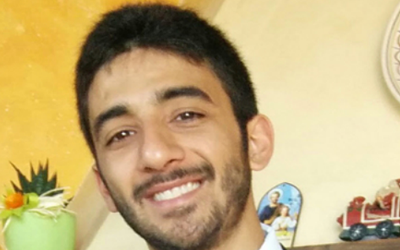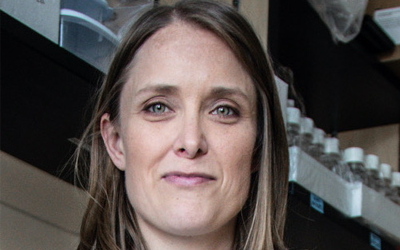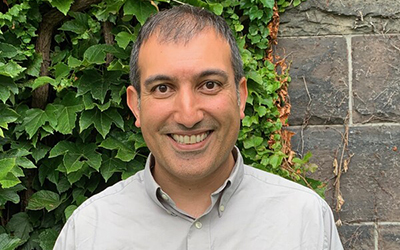Stefano Cataldi, University of British Columbia, Centre of Applied Neurogenetics
Quebec Research Fund on Parkinson and Parkinson Society British Columbia Graduate student award of $30,000 over 2 years through the Parkinson Canada Research Program during the 2016 – 2018 research funding cycle
Project description:
Within every brain cell, proteins are constantly moving from one compartment to another. As new proteins are produced, others are degraded or recycled – an internal traffic system designed to keep the neurons healthy and ensure the body functions properly. Unfortunately, if one or more proteins within those cells malfunction, the whole system can break down.
Researchers theorize that in Parkinson’s disease, an accumulation of proteins that don’t get cleared away, such as clumps of alpha-synuclein, can cause dopamine-producing brain cells to die and lead to the movement disorder. At the University of British Columbia (UBC), graduate student Stefano Cataldi is studying a particular protein, called VPS35. He believes VPS35 is involved in regulating this cellular traffic flow. He is trying to identify the specific role that the protein plays in the process.
Cataldi, a neuroscientist, is using mouse models of Parkinson’s disease to observe the way that mutated forms of VPS35, or mouse models where the gene is absent, affect movement and the symptoms of the neurodegenerative disease. “We want to know why, when this protein is altered, you have these malfunctions, and what that means in the mouse behaviour,” Cataldi says. If he can determine whether VPS35 is working more or less than it should be during the protein transportation process, Cataldi believes the protein might become a drug target that could either slow down or speed up the traffic jam taking place within affected brain cells. Unclogging that traffic jam early in the process of neurodegeneration, before the symptoms of Parkinson’s are advanced, could preserve neurons and prevent the progression of the disease. “The neuron is still alive, so we could still fix the problem before it dies,” he says.
Cataldi, whose background is in pharmacology, began studying Parkinson’s disease at the University of Ferrara in his native country of Italy. When he moved to Vancouver to complete his PhD at UBC, Cataldi also began volunteering in the Parkinson’s community. In fact, you may have seen him at the registration table at Moving Forward, Together! Volunteering has fueled his passion to continue his research into the causes of this disease. “Parkinson’s patients don’t give up. They are singing and exercising and dancing and doing whatever they can to beat this disease,” Cataldi says. “When they come to you as a scientist, they actually thank you for what you’re doing. I think they are amazing people.”
Reproduced with permission from Parkinson Canada.







